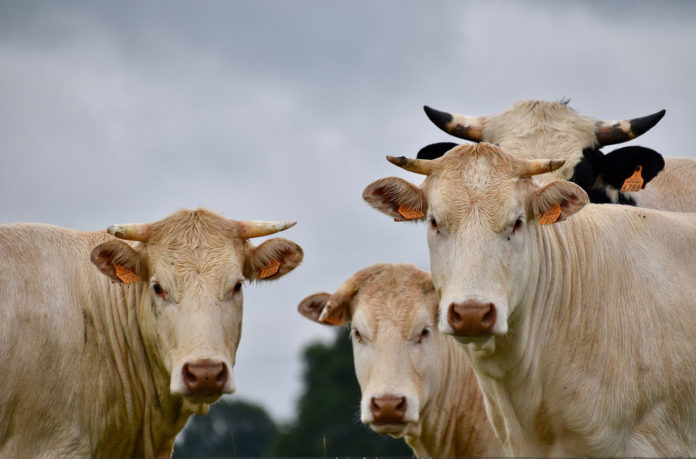Cows, similar to people, harbor a wide scope of microscopic organisms in their noses, microorganisms which are typically present and presumably fundamental for wellbeing like those that live in the gut. In any case, a few types of these microorganisms do cause genuine ailment now and again, especially when contamination ends up building up in the lower respiratory tract inside the lungs.
In a new study, scientists at the University of Bristol Veterinary and Medical Schools investigated the patterns of acquiring and clearing these microbes in healthy young cattle, which have not recently been studied in detail.
Scientists took nasal swabs at intervals during the primary year of life, to distinguish their presence and measure their abundance utilizing a DNA-detection system called quantitative polymerase chain reaction (qPCR) that targeted genes found in three bacterial species well-known for their ability to cause respiratory disease in cattle: Histophilus somni, Mannheimia haemolytica and Pasteurella multocida.
Scientists found the carriage patterns of the three bacteria differed remarkably. Pasteurella was found in most of the animals, large numbers of bacteria were usually present, and the bacteria stayed in the nose for weeks or months. Histophilus was present in up to half the animals, generally in smaller numbers and the periods it was present were shorter. Mannheimia was rarely found although the numbers detected, when present, varied widely.
Amy Thomas, lead author who carried out the research as part of her PhD studies in Clinical Veterinary Science, said: “These techniques and results offer a way forward in understanding why and how apparently healthy cattle harbouring these bacteria may go on to develop respiratory illness and should help in finding new ways to prevent it.”
Professor Mark Eisler, co-author and Chair in Global Farm Animal Health at the Bristol Vet School, added: “These studies are particularly important because cattle are known to contribute to greenhouse gas emissions and to improve how their diseases are controlled will help mitigate climate change. Also, reducing the use of antimicrobials that treat respiratory diseases in cattle should help reduce the increasing global threat of antimicrobial resistance in animals and humans.”
The study is published in the journal Scientific Reports.
